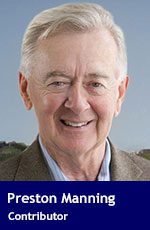- A fictionalized account of the Report of the Covid Commission
- Public unrest and the Freedom Convoy of 2022
- The rise of the Common Sense Movement
- Trudeau needs to be held to account for invoking Emergencies Act
- Trudeau turned to the dark side in response to Covid-19
- The final report of the Covid Commission
- The next election will be a common sense revolution
- Should those who mismanaged Covid crisis be held legally accountable?
While the following series is fictional, the principle objective is non-fictional – to explore the likelihood that sooner or later, Canadians will demand a full-scale investigation into the management of the COVID crisis by our federal government.
 Predictably, while most of the mass media and academia went along with the channel change strategy, the vast majority of rank and file Canadians did not. It was their conviction that the Prime Minister’s pronouncements on an alarming international crisis were as insincere and misguided as his pronouncements on the COVID crisis at home. Moreover, the formation of the Liberal/NDP Coalition was nothing more than cynical manoeuvering by an insecure government to stay in office.
Predictably, while most of the mass media and academia went along with the channel change strategy, the vast majority of rank and file Canadians did not. It was their conviction that the Prime Minister’s pronouncements on an alarming international crisis were as insincere and misguided as his pronouncements on the COVID crisis at home. Moreover, the formation of the Liberal/NDP Coalition was nothing more than cynical manoeuvering by an insecure government to stay in office.
Serious questions concerning the rationale behind the federal government’s pandemic management and its failure to anticipate, acknowledge, and address its negative impacts continued to be asked with increasing intensity by increasingly more opinion leaders, by organizations small and large from coast to coast, and by independent media – questions which the Trudeau government was neither willing nor able to answer satisfactorily.
As the public demand for answers mounted, with no satisfactory response from the federal government or parliament, there was a growing negative reaction against the Liberal dominated government, against the federal NDP for sustaining it, and against parliament itself for its seeming inability to hold the federal government accountable for its management of the COVID pandemic.
Public support for the Freedom Convoy broadened into what came to be called the Common Sense Movement. Its rise was somewhat akin to that which occurred in the 1980s and ‘90s, whereby the populist-oriented Reform Party morphed into the Canadian Alliance, which in turn led to the creation of the Conservative Party of Canada and the formation of a majority federal government by that party. But due to the prevalence and dominance of social media, in 2022-23 it took only a year, rather than a decade, for this COVID-driven transformation of the federal political landscape to occur.
The Common Sense Movement came to be headed by a charismatic, anti-establishment female leader named Leah Wahlstrom. Her father’s small independent trucking firm had been forced into bankruptcy by the vaccine mandate, and Leah emerged as a shrewd and gifted spokesperson for the Freedom Convoy and its growing contingent of political activists.
COVID-19 shows modern politics lacks common sense by Jack Buckby
Our governments have become too large and self-serving
Coalition government may open door to dire electoral changes by Lydia Miljan
Get ready for higher deficits, bigger government, a rise in regional tensions and a fractured nation
By the summer of 2022, the Common Sense Movement had grown to the point where many considered it to be the chief source of opposition to the Liberal/NDP government outside of parliament. The Interim Leader of the Official Opposition in the House of Commons – whose party was in the midst of a leadership contest – therefore proposed a conference between representatives of her party and the Movement to explore the prospects of working more closely together.
The result of this conference and subsequent meetings was the formation of the Common Sense Coalition – co-led by Leah Wahlstrom and the new leader of the Conservative Party of Canada chosen by the party membership on September 10th, 2022.
A key component of the new leader’s leadership campaign had been a pledge to form a principled Coalition with the Common Sense Movement with the approval and support of the large grassroots memberships of both groups. This Common Sense Coalition was to be contrasted with the unprincipled Liberal/NDP Coalition formed and announced without any consultation of the rank and file members of those parties or their electoral supporters.
The declared intention of the Common Sense Coalition was to marry the populist energy and resources of the Movement with the research, organizational, and campaign capacities of the Official Opposition to fight the next federal election whenever that should occur. In the meantime, the first significant project of the Common Sense Coalition was to create and support what came to be known as the COVID Commission.
Preston Manning’s long record of public service includes work as founder of the Reform Party and as a Member of Parliament.
Preston is a Troy Media Thought Leader. For interview requests, click here.
Next: The COVID Commission
The opinions expressed by our columnists and contributors are theirs alone and do not inherently or expressly reflect the views of our publication.
© Troy Media
Troy Media is an editorial content provider to media outlets and its own hosted community news outlets across Canada.
